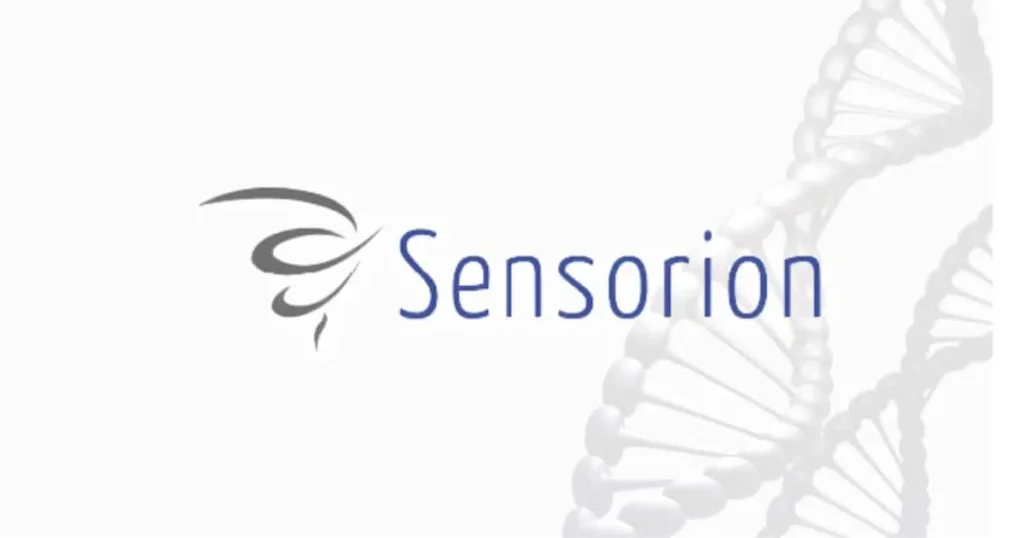
Sensorion Gets Positive Board Recommendation for SENS-501 Trial
Sensorion a pioneering clinical-stage biotechnology company specializing in the development of innovative therapies for hearing loss disorders, has announced a significant milestone in its Audiogene clinical trial. The company reported that the Data Monitoring Committee (DMC) has recommended the continuation of the Phase 1/2 clinical trial for SENS-501, a groundbreaking gene therapy designed to address a specific form of congenital deafness caused by mutations in the OTOF (otoferlin) gene.

The OTOF gene plays a critical role in auditory function, encoding otoferlin, a protein essential for transmitting sound signals in the inner ear. Mutations in this gene result in profound congenital hearing loss, making gene therapy a promising approach to restoring auditory function in affected individuals. Sensorion’s SENS-501 aims to address this genetic deficiency through intracochlear administration, directly targeting the affected cells within the inner ear.
Nawal Ouzren, Chief Executive Officer of Sensorion, expressed gratitude for the committee’s review and positive recommendation. She stated, “On behalf of the Sensorion team, I would like to thank the members of the Data Monitoring Committee for their review of the Audiogene safety data produced to date. We are pleased with the committee’s recommendation to continue the trial without modification.”
Positive Safety Profile and Progress in Patient Enrollment
The DMC’s recommendation underscores the favorable safety profile of SENS-501 at the first dose level tested in children aged 6 to 31 months at the time of administration. Notably, the intracochlear administration of the gene therapy has been well tolerated, an essential consideration for advancing the trial. The committee has endorsed the continuation of the Audiogene study, allowing Sensorion to proceed with the second dose evaluation in the planned dose-escalation portion of the trial.
Enrollment in the study remains on track, with Sensorion confirming that the first cohort of three patients, comprising infants and toddlers aged 6 to 31 months, is expected to be fully enrolled by December 27, 2024. The second cohort, which will also include three patients, is anticipated to complete enrollment by the end of the first half of 2025. The successful progression of these cohorts will be crucial in determining the optimal dose and assessing the potential therapeutic benefits of SENS-501.
Understanding the Audiogene Trial
The Audiogene clinical trial has been carefully designed to evaluate the safety, tolerability, and efficacy of intracochlear injection of SENS-501 in young children with hearing loss due to OTOF gene mutations. Given the critical importance of early intervention, the trial focuses on children between the ages of 6 and 31 months. During this period, the brain exhibits heightened plasticity, providing an optimal window for auditory rehabilitation and language acquisition.
The study consists of two initial cohorts receiving escalating doses, followed by an expansion cohort at the selected dose level. This approach enables researchers to gather comprehensive data on both safety and potential therapeutic efficacy, ensuring that the gene therapy is optimized for future clinical applications.
Gene Therapy as a Revolutionary Approach to Hearing Loss
Hearing loss due to OTOF gene mutations is a severe and permanent condition that has historically lacked effective treatment options. While cochlear implants offer a solution for individuals with profound hearing loss, they do not fully replicate natural hearing and require ongoing maintenance and rehabilitation. Gene therapy, however, has the potential to address the root cause of the condition by restoring otoferlin function at a cellular level.
SENS-501 is part of Sensorion’s broader strategy to advance precision medicine for hearing disorders. By leveraging gene therapy techniques, the company aims to restore hearing function in patients who currently have limited treatment options. The successful development of this therapy could pave the way for similar genetic interventions for other forms of hereditary hearing loss.
Future Implications and Next Steps
As Sensorion progresses through the Audiogene trial, the company remains committed to rigorous scientific evaluation and patient safety. The next phase of the study will involve a thorough assessment of the second dose cohort, providing crucial data that will inform further development and potential regulatory submissions. If the results continue to demonstrate safety and efficacy, SENS-501 could move toward later-stage clinical trials and eventual commercialization.
Additionally, Sensorion continues to collaborate with leading research institutions and industry partners to advance its gene therapy platform. By integrating cutting-edge biotechnology with clinical expertise, the company aims to address unmet medical needs in the field of auditory disorders.
About SENS-501
SENS-501 (OTOF-GT) is an innovative gene therapy program developed to treat a specific form of congenital deafness linked to mutations in the OTOF (otoferlin) gene. This gene plays a key role in the transmission of auditory signals between the hair cells of the inner ear and the auditory nerve. When this gene is defective, affected individuals are born with severe to profound hearing loss.
The goal of SENS-501 (OTOF-GT) is to restore hearing by introducing a functional copy of the OTOF gene directly into the hair cells via viral vector (AAV) technology. By replacing the defective gene, this therapy aims to restore the normal process of converting sounds into electrical signals, allowing patients to regain their hearing.
Currently in clinical research, this gene therapy program represents significant hope for families affected by this rare form of genetic deafness. SENS-501 (OTOF-GT) embodies a commitment to scientific innovation in the field of hearing, with the potential to significantly improve the quality of life of patients suffering from genetic deafness.
This gene therapy for patients suffering from otoferlin deficiency was developed within the framework of the RHU AUDINNOVE, a consortium composed of the Necker Enfants Malades Hospital, the Pasteur Institute, the Hearing Foundation and Sensorion. This project is partly funded by the French National Research Agency under the Investments for the Future program bearing the reference ANR-18-RHUS-0007.
About the Audiogene Trial
Audiogene aims to evaluate the safety, tolerability and efficacy of intracochlear injection of SENS-501 for the treatment of OTOF-mediated hearing loss in pediatric patients aged 6 to 31 months at the time of gene therapy treatment. By targeting the early years of life, when brain plasticity is optimal, these young children with prelinguistic hearing loss are most likely to acquire normal speech and language. The study consists of two cohorts of two doses followed by an expansion cohort at the selected dose. While safety will be the primary endpoint for the first part of the dose escalation study, auditory brainstem response (ABR) will be the primary efficacy endpoint for the second expansion part. Audiogene will also evaluate the clinical safety, performance and ease of use of the delivery system developed by Sensorion.
About Sensorion
Sensorion is a pioneering clinical-stage biotechnology company focused on developing novel therapies to restore, treat and prevent hearing loss disorders, a major unmet medical need worldwide. Sensorion has established a unique research and development technology platform to better understand the pathophysiology and etiology of inner ear diseases, enabling it to select the best targets and mechanisms of action for drug candidates. It
has two gene therapy programs aimed at correcting hereditary monogenic forms of deafness, developed as part of its broad strategic collaboration on hearing genetics with the Pasteur Institute. SENS-501 (OTOF-GT), currently in a Phase 1/2 clinical trial, targets deafness caused by mutations in the gene encoding otoferlin and GJB2-GT targets hearing loss related to mutations in the GJB2 gene to potentially address important segments of hearing loss in adults and children. The Company is also working to identify biomarkers to improve the diagnosis of these underserved diseases.
Sensorion’s pipeline also includes clinical-stage small molecule development programs for the treatment and prevention of hearing loss disorders, SENS-401 (Arazasetron). Sensorion’s small molecule is advancing in a planned Phase 2 proof-of-concept clinical study for the preservation of hearing in cisplatin-induced ototoxicity (CIO). Sensorion, with its partner Cochlear Limited, completed a Phase 2a study of SENS-401 in 2024 for the preservation of residual hearing in patients undergoing cochlear implantation. A Phase 2 study of SENS-401 was also completed in January 2022 in sudden sensorineural hearing loss (SSNHL).
www.sensorion.com





